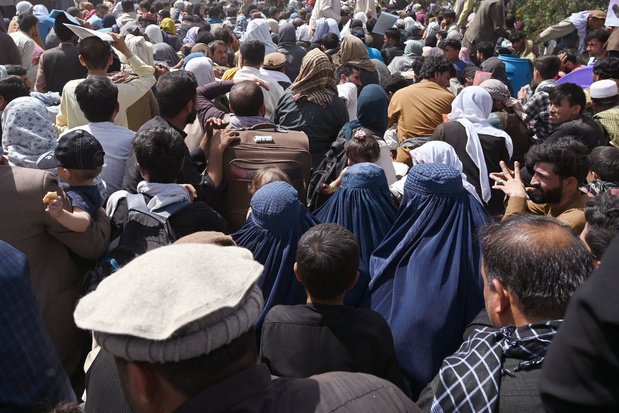There are still some 480 people on the Belgian list of people who can be evacuated from Afghanistan, according to a statement from Foreign affairs Minister Sophie Wilmès.
Wilmès, who is in New York attending the annual General Assembly of the United Nations, of which Afghanistan and the future relationship with the Taliban regime were some of the main discussion points, explained that the total number of people have been divided into four categories.
Around 150 people were waiting to leave Afghanistan as part of Operation Red Kite, which rescued around 1,400 people and ended on 26 August, whilst the others reported to the Belgian Embassy in Islamabad (in Pakistan) after that date.
The first and largest group of people are those with Belgian or dual nationality, and all their family members, including spouses and children - around 260 people.
This category is followed by a group including 63 people, of which the common denominator is that they are all more at risk now that the Taliban has taken over power in Afghanistan due to their job roles or engagements.
The two slightly smaller groups include 45 people who worked for the Belgian government or organisations connected to the country in Afghanistan - including human rights defenders and other activists - and 49 people with a residence permit in Belgium.
Although some people within these groups have indicated that they want to stay in Afghanistan, those who wish to leave can leave the country in two ways.
One option is to leave by land, however, the Belgian authorities advise against that option because of the risks involved. The second option is to take the flights that have been organised from Qatar in the last few days, through which several people on the list have already returned.
According to a source at the Ministry for Foreign Affairs, the list of people who want to be evacuated has not stopped growing.
False promises
Contrary to the promises made by the militant group that the rights of Afghans would be respected when it took power, the Taliban is "dismantling the human rights gains of the last twenty years," according to a recent briefing published by Amnesty International, the International Federation for Human Rights (FIDH) and the World Organisation Against Torture.
The organisations, that aimed to document the group's actions since its seizure of Kabul more than one month ago, detailed a long list of human rights abuses including targeted killings of civilians and surrendered soldiers and the blockading of humanitarian supplies in the Panjshir Valley, which constitute crimes under international law.
Under the rule of the Taliban in the 90s, women were prohibited from studying, which is why this announcement caused uproar and raised fears among the Afghan population and the international community that a return to this strict ruling is underway.
This week, a Taliban government spokesperson said Afghan schoolgirls will be allowed to return to school "as soon as possible."
However, the human rights' organisations stressed that "the Taliban have clearly demonstrated that they are not serious about protecting or respecting human rights."

